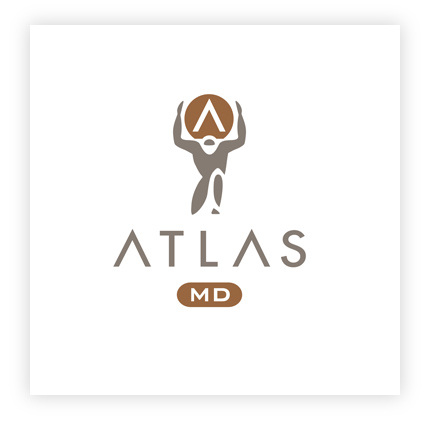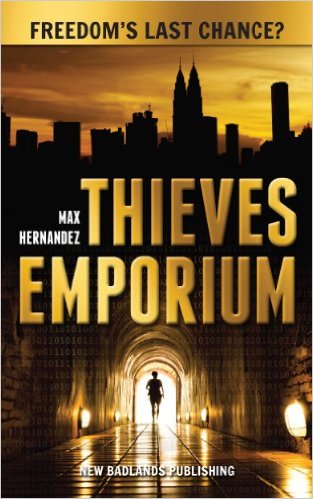|
Today's resource suggestion is a short and entertainingvideo with a very strong point that is made. I think there may be some metaphysical commitments hiding in the video that I don't agree with, but those disagreements are immaterial to the case presented.
0 Comments
The time has come, I think, to purge some podcasts off my list. I have more podcasts than I have time, and some of them have ceased providing utility for my current situation... which happens a few times a year. Usually, when this time comes, I share on facebook the ones that I am abandoning and why. Now that I have a platform on which I talk about podcasts incessantly, I figure this may be a better place to do so.
Podcasts I continue to listen to (in order of priority):
Podcasts I no longer listen to:
Podcasts that have been discontinued:
It's been a while since I've blatantly ripped off Tom Woods. Today is a good day to do so, though. Today's recommendation is Atlas MD. "How would medicine possibly help the 'underprivileged' without socialist, nationalized healthcare?" Dr. Josh Umbehr, from Kansas, has a demonstrable and tested solution to just such a question. A thorough but simple exploration of his model of free (in the liberty sense, not monetary sense, but it's pretty damn close to no-cost) medicine recently appeared in Tom Woods Show Episode 481. A project as simple and ambitious as Atlas MD is going to take some time to gain momentum, but the numbers recounting his success don't lie. His primary project is upholding the Hippocratic Oath while his secondary project is to encourage other physicians to do the same. If people become more aware of this revolutionary approach of "charge a reasonable price and allow the market to do it's job" and ask for it, medicine may become a respectable career choice by the end of my lifetime. AtlasMD has a podcast feed, blog, and a page oriented at helping other doctors join the free market. I strongly recommend that you listen to the podcast episode, and then talk to your primary care physician about it (and maybe ask about bitcoin, as well; my doctor takes it, and so should yours).
Today's resource suggestion is another book. This one is available on amazon for purchase or, for free, in unabridged installments at The Daily Bell. It is a fun novel which explores real technology, real cultures, and provides the reader with a new way of looking at the world and a set of actionable options for improving one's quality of life.
To call Thieve's Emporium a work of science fiction would be unfair. While it somewhat defies genre, I guess it could be considered an educational drama? The characters are largely fictional, but what they face and what they do are largely non-fiction. I don't want to spoil too much of the plot, and I have not quite finished the book yet, but I strongly recommend people read this book. With unlikely sympathetic characters in a world that is designed to marginalize them, and a slew of philosophical, moral, and ethical discussions that can and should be sparked by this work, It's certainly a good way to spend a lazy weekend.
More economics, today; sorry people. As my more recent full posts have demonstrated, I find the influence of economics on every aspect of daily life to be unavoidable. Many people do not understand the relationship between economic principles and daily life, let alone how insidious the manipulations of the economically-minded can be with regards to individual flourishing.
For instance, many people claim that "Without government, there would be no way to be certain that our alcohol isn't poisoned." Interestingly enough, with government, we can be certain that our alcohol will be poisoned. By law, any drinkable alcohol (ethanol) that isn't explicitly approved for drinking (and taxed at the designated rate for drinking alcohol) must be poisoned so as to prevent arbitrage between affordable alcohol and artificially inflated drinking alcohol prices. This is actually the case in almost every consumer good industry. Industrial plastics vs. Dental plastics, and now even software that is designed to stop working at different points in time for different consumers are other prime examples. I recommend, today, that one watch this video in order to get the basics on what price discrimination actually is, from an economics standpoint, and then read this article about the social impact government involvement in such practices has. In the spirit of Rothbard, Walter Block presents a treatise on the relationship between crime and economic manipulation, semi-appropriate ethical indignation and the unintended consequences of using violence to try to prevent those ethically unappealing actions.
In Defending the Undefendable, Walter Block defends the heroin dealer, the speculator, the employer of child labor, and the man who screams "fire" in a crowded theater against accusations of economic perversity and harming the social order. He does so quite effectively. After reading this book, one who is educated in economics will have to seriously reconsider support of a minimum wage and legal prohibitions against child labor. The introduction, written by Rothbard himself, makes it clear that while the people defended in Block's book are heroes because of the role they play economically and the adversity they face in reducing the friction of a politically-controlled economic system, this is not a moral defense of the particular actions the people make. For instance, a heroin dealer could very well be a boon to the market and a hero in face of the evils of government while also perpetrating an immoral or unethical act (such as selling poison to people, even if it is a voluntary interactions). As compelling, concise, and informative as the book is as a whole, there is one chapter, however, that doesn't seem to belong. The defense of the "Male Chauvinist Pig" was less an economic defense of chauvinism and much more an incoherent and aggressive defense of feminist talking points, most prominent of which being the importance of abortion. This defense of abortion is actually inconsistent with a much more compelling case he makes later on in the case of defending "The Employer of Child Labor". All-in-all, though, this book is a must-read for anyone who believes in the free market but hasn't critically assessed their position on "the undefendable" as of yet, people who are genuinely interested in reducing crime and increasing the quality of life for the poor, and those that still believe that government violence can somehow improve the world. Each chapter is a few pages long, very direct and to the point. One can acquire the book for free in digital form from the Mises Institute, or purchase a hardcopy at Amazon. I strongly recommend that you do so.
There is a liberty-oriented radio show that plays daily for a few hours. It is syndicated on something like 150+ radio stations around the globe, including Africa. It's called Free Talk Live, and every episode is posted on youtube after the broadcast concludes. They also have a podcast feed that plays all the episodes (on the left side of the homepage).
Full disclosure, I do not really enjoy listening to Free Talk Live. I find it to be repetitive and elementary (and certain personalities on the show really get on my nerves). Of course, this is because I'm already neck-deep in libertarian culture... the show is played nightly on something like 150+ broadcast stations around the globe, including Africa and brings the message of liberty to thousands of people that would otherwise never hear something outside the 3x5 index card of educational talking points they learn at school and on TV. It's a part of the Liberty Radio Network, which does so much for bringing the message of liberty to people. I used to listen to Sunday episodes with Brian and Stephanie (of Sovryn Tech) before they moved on to bigger and better careers and Wednesday nights with Christopher Cantwell before he got suspended for arguing with a liberal on twitter. After Cantwell's suspension, viewership numbers dipped. Now that he is back, people ought to do what they can to boost those numbers back to their original magnitude, if not beyond. Cantwell provides an essential service in the libertarian culture, as a watchdog against corruption in the "movement". Of course, those that find themselves attacked by Cantwell have substantial resources to bring against him; this results in a need for more people to support him free-market-style. So, this is a combination resource suggestion and call to action. Please watch and like this video, amongst the others that Cantwell will be a part of in the future. Who knows, maybe you'll learn something along the way.
This is how police should treat people... and how people should treat police.
One of the single greatest reasons I intend to move to New Hampshire is this: A few guys (some openly carrying guns) take chalk and write polite but firm anti-cop messages all over the sidewalk in front of the police station. Instead of coming out, beating, and arresting these men, a solitary officer comes out for a nice lunch-break chat about how government is an unnecessary evil. In many other places around the country, as mentioned in the video below, people would be executed on the spot simply for having a gun, let alone writing chalk messages in front of a police station. Like Cantwell, I believe that if someone, anyone is attempting to rob, murder, or coerce you, you have an obligation to stop them at any cost. However, if someone is dressed like a criminal but not attempting to commit a crime against you, then you have an obligation to at least give them a chance. This video demonstrates this second situation perfectly.
I really don't know why liberty people don't want Cantwell around. He can be coarse, but the Truth is coarse. He sticks to the fundamentals because, without fundamentals, you can't go anywhere good. When it comes down to it, Cantwell has accomplished more for freedom by chalking sidewalks, pointing guns at drunks, and having cops out for coffee than everything done by Jeffrey A. Tucker or Austin Petersen combined.
https://youtu.be/Uqoh_xRYGuM Related to my post concerning conspiracy theories, I have a short list of conspiracies that were merely theorized about at one time, but later became a matter of historical fact. This list of 10 Conspiracy Theories that turned out to be True is not an attempt to make you join the 9/11 truth movement or to buy some expensive magnets to protect you from lizard jews, but it is an opportunity to falsify a common claim that conspiracy theories are never true or will never be verified. Several of these conspiracies would never have come to light, had conspiracy theorists not investigated them.
The questions raised in my blog post are still very important, but this list can add depth to the discussion presented. This article is a great way to open a wide-ranging discussion about drugs in a free society. Libertarians are often painted (not unfairly) as being obsessed with legalizing and decriminalizing drugs. Cops and cop apologizers these days, have nobody more scary, unpredictable, and violent than a cop to point to that the caricature of a crackhead to say, "At least we're better than him." Admittedly, in an anarchist community, drugs would be "decriminalized" as a matter of course. It is crucial, then, for liberty-minded individuals to explore the full breadth of understanding that we have so far about drugs, the societal impact they have, and the best methods for encouraging responsibility in one's family and community. Such a discussion also opens the door for further reading and discussion into the realities hidden behind propaganda, such as the relatively low rate of addiction even amongst users of "hard" drugs like cocaine and heroin or the incredibly strong relationship between exposure to environmental factors (almost all caused by government) and drug use.
|
Archives
October 2015
Categories
All
|







 RSS Feed
RSS Feed
